The Rowleys are trending again. I don’t often check my stats, but when I do, it’s either “The Legend of Sarah Jane Road” or “The Legend of Bragg Road.” The people who share my articles are into ghost legends, growing up in Port Arthur, or the restaurants they would eat at. I guess it’s food for thought. But I usually also see interest in the Rowley family articles—to me, they are a part of history that needs to be told. Yes, most of the hits come from the family itself, but the historical aspect inspired me to search for answers in order to tell the correct story of what happened to each member of this family. I often think about Gene, Dido, Jerry, Rex Jr., and their father, Rex. I have a photo of the Rowley Trio with Johnny Horton in my office. I nicked it from a YouTube video; since then, I offered it to the interweb and the family. I’ll leave a link to the Rowley Trio and their amazing story below.
My first association with the Rowleys was at Greenlawn Cemetery in Groves while I was visiting the plot initially reserved for World War I veterans and their families. Walking through the rows, I noticed a headstone with a photo of a young girl and a poem under it. The poem was odd and depressing, so I wanted to know her story.
If I must die then die I must and when the coffin round me rusts my bones will go whence they came and all that’s left is my name. To shield that name I’ll do my best; that’s all that’s left when I’m at rest. I’ll do no harm and bring no shame upon my dad and mother’s name.
When I first saw the headstone, I immediately began to research its story. I found that someone from Port Arthur had made a twelve-minute movie about the girl’s presumed life. I won’t get into the crap that this jackass put out because he was wrong for doing this. Virginia “Gene” Rowley died in San Antonio in a car accident. She was there working as a radio operator at Kelly Field.
Her mother probably added the poem to the headstone because Gene was a poet and had won awards for her writing. She may have also been saddened by her father’s suicide in 1934. Rex was in the Great War, but I have no information on how and where he served. According to the newspaper articles, he was upset that he couldn’t find a job. Remember, this was during the Great Depression. Although our SETX area did not suffer as much as most of the country, some of its residents did. Both Rex and Gene are buried in the World War I plot. They are not side by side but giving their backs to each other. Although they are facing away from one another, I have a feeling they are looking at each other eye to eye. In the end, we can only guess how it is.
There is a lot of tragedy here. Fortunately, a descendant sent me some information on Vera (Dido) and Jerry, who had a different life. The story of the Rowley Trio is amazing. They played with some big names at the time. One was Johnny Horton. They even played on the Louisiana Hayride radio show, which launched many careers during that era, including Elvis Presley, Hank Williams, Kitty Wells, and Jim Reeves. The Rowley Trio didn’t rise to that level of stardom, but Dido continued her career in show business. Some of you here and in Houston who grew up in the 1960s might remember the name of Don Mahoney if you watched KPRC on Saturdays. Don Mahoney had a local television show called Don Mahoney and Jeanna Clare and Their Kiddie Troupers. It was a talent show for kids, but the two hosts emulated Roy Rogers and Dale Evans. Yes, Dido was Jeanna Clare!
Between the tragedy and the triumph, there is a lot here that the family can be proud of. They are not the Kennedys, which is a positive thing, and I see their part in SETX history as a source of great inspiration. And yes, I wanted to tell their story correctly. They deserved as much. Well, Nederland, you have other celebrities in the world of entertainment. Move over, Tex Ritter, and let the Rowley Trio and Jeanna Clare join you on the pedestal of entertainers from Nederland, Texas. I know you would Welkom that because it’s on your Boston Avenue sign!
As I write, I still haven’t heard anything back from the ground-penetrating radar (GPR) survey. It may take a few weeks, but hopefully there will be something of substance that we can use as proof of where the yellow fever victims are buried. I’m crossing my fingers but not holding my breath. The GPR machine can penetrate concrete but has trouble with the clay soil of Sabine Pass. The more sand in the soil the better it works. Those thinking of using something like this tool should keep this issue in mind.
Well, it’s Easter Sunday, and I’m working because there is no rest for the wicked. So, I’ll bid you farewell and let Susie Spindletop take over for some Weekly Letter “hoppy” memories.
Dear Della:
I am like Tom Heflin, Easter makes me sick. The Alabama senator has been egged so often during his speaking tours that I hear he dodges every time any one mentions Easter to him.
Easter makes me sick, however, for an entirely different reason. According to my way of thinking Easter is divided into three classes:
Too cold for Easter hats.
Too wet for Easter hats.
No Easter hats.
I have never known any other kind of Easter Sunday. Therefore Easter makes me sick.
* * *
It is intriguing to delve into the beginnings of a festival such as Easter, isn’t it? So many whimsical customs come to light which account for many of our modern observances of the day.
Frinstance, Della, where did the custom of the Easter bonnet originate? An old superstition to the effect that a new bonnet worn on Easter Sunday would insure love and happiness in the ensuing year is back of it.
* * *
And how come the Easter egg? Many hundreds of years ago the egg stood as a symbol of a new life, I read, and played an important part in the religious ceremonies of the Egyptians, Persians, Greeks, Gauls, and Romans. Later, the Christians took an egg as an emblem of the resurrection.
* * *
About egg rolling?
Well as far as I can find out, egg rolling had its inception in England.
It seems in ancient days it took a most astonishing form. People themselves were accustomed to roll down Greenwich Hill, supposedly for the purpose of expressing the ecstasy which the return of spring incited. This custom was abandoned and in its place came the charming practice of egg rolling.
It is related that in olden times, poor children would wander through the streets singing. For reward people would give them colored Easter eggs which they would take up to the same hill. Arrived at the hill they would roll their eggs down and the child who succeeded in rolling his so that they reached the bottom intact would be proclaimed the winner.
* * *
Della, from England, too, I notice, came the quaint superstition that the sun danced on Easter morning—a superstition which to this day is solemnly believed and celebrated in parts of Ireland. In order to see the “sun dance” the people would arise at dawn and go forth in masses. I’ll take their word for it. How about you?
So wrote Susie,
Easter Sunday, March 31, 1929
Don Mahoney and Jeanna Clare with Their Kiddie Troupers | Segment (1970)
https://texasarchive.org/2016_04235
The Rowley Trio:
https://www.rediscoveringsetx.com/2017/04/11/the-rowley-trio/
Virginia Lee Rowley:
https://www.rediscoveringsetx.com/2015/12/29/tales-from-hallowed-ground-virginia-lee-rowley/
Louisiana Hayride:
https://en.wikipedia.org/wiki/Louisiana_Hayride
Dido Rowley And The Troupers – When The Chips Are Down (Enterprise GS-1206) [1957 country bopper]
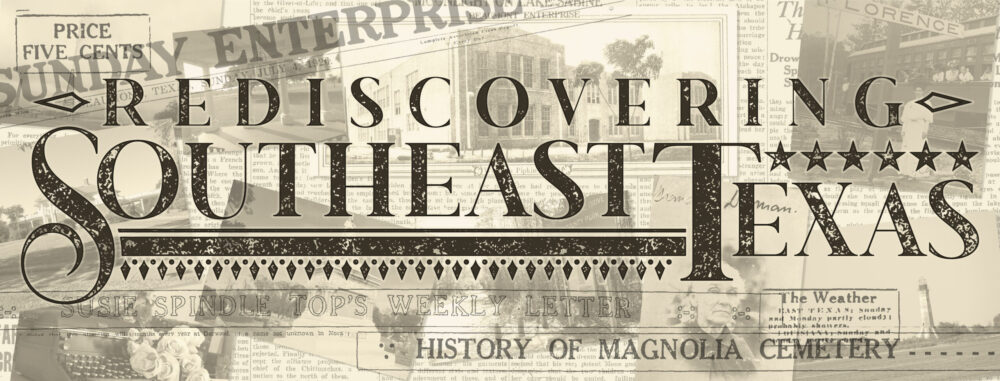
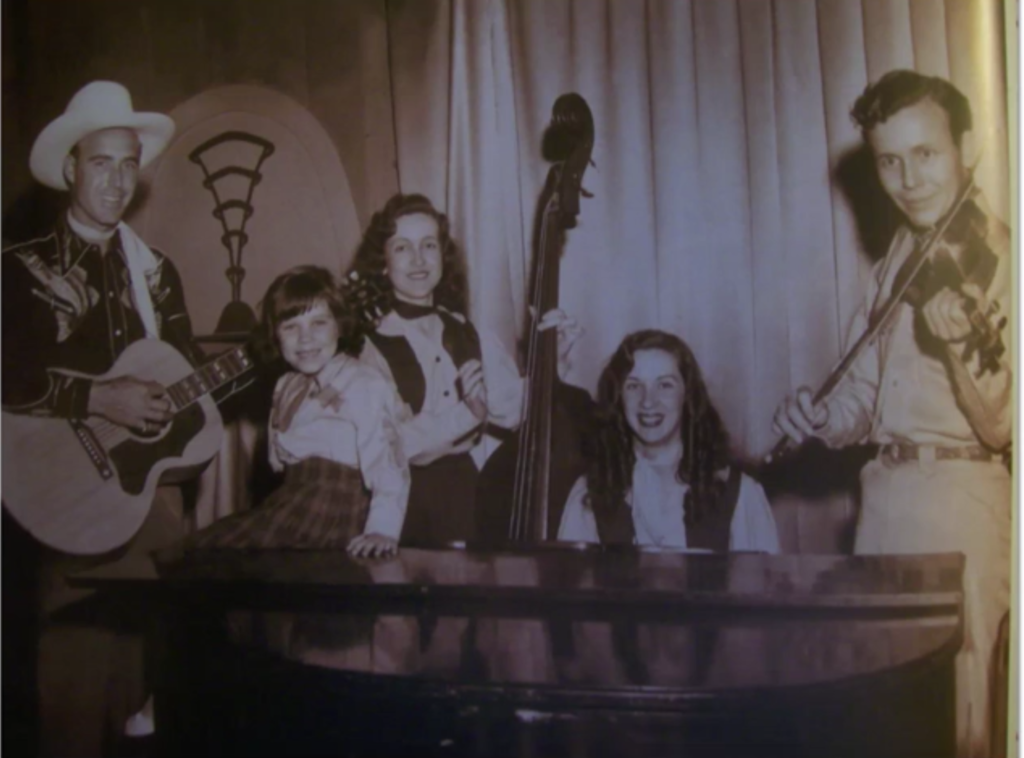
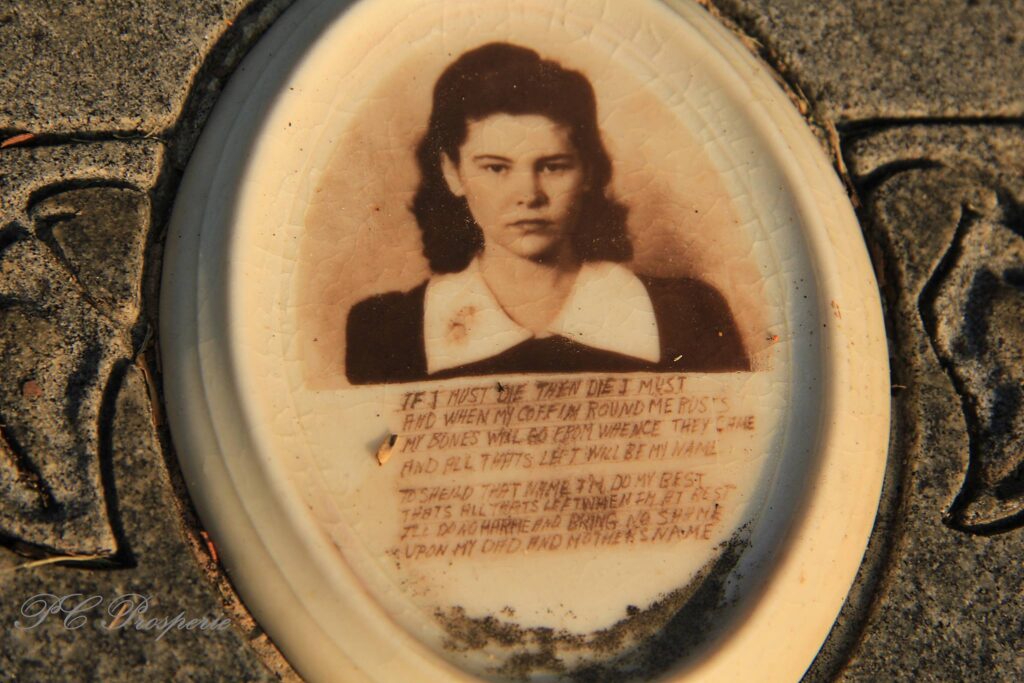
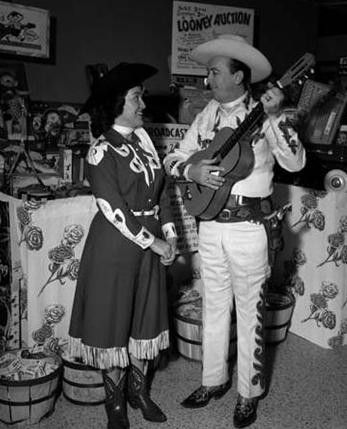
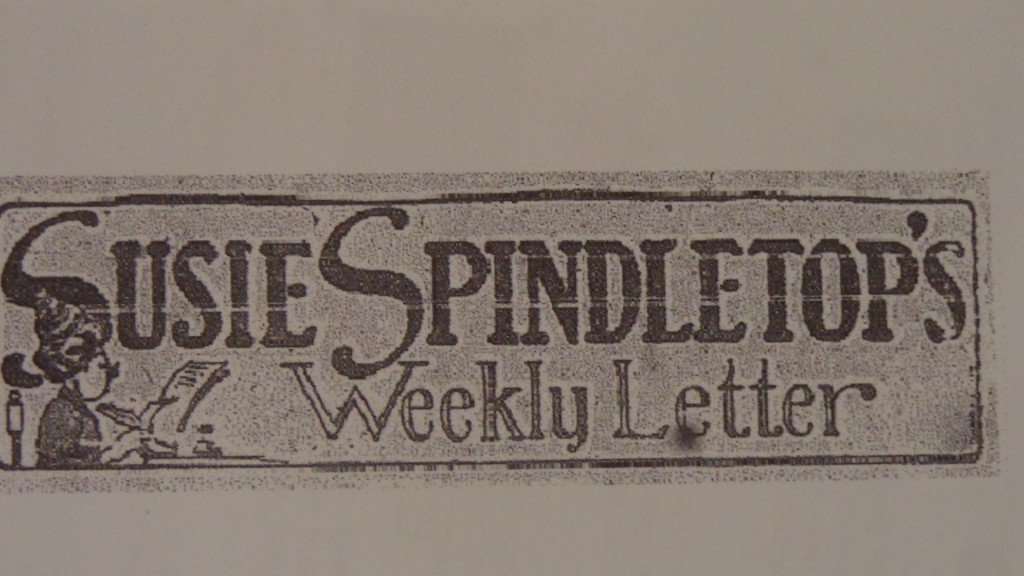
You must be logged in to post a comment.